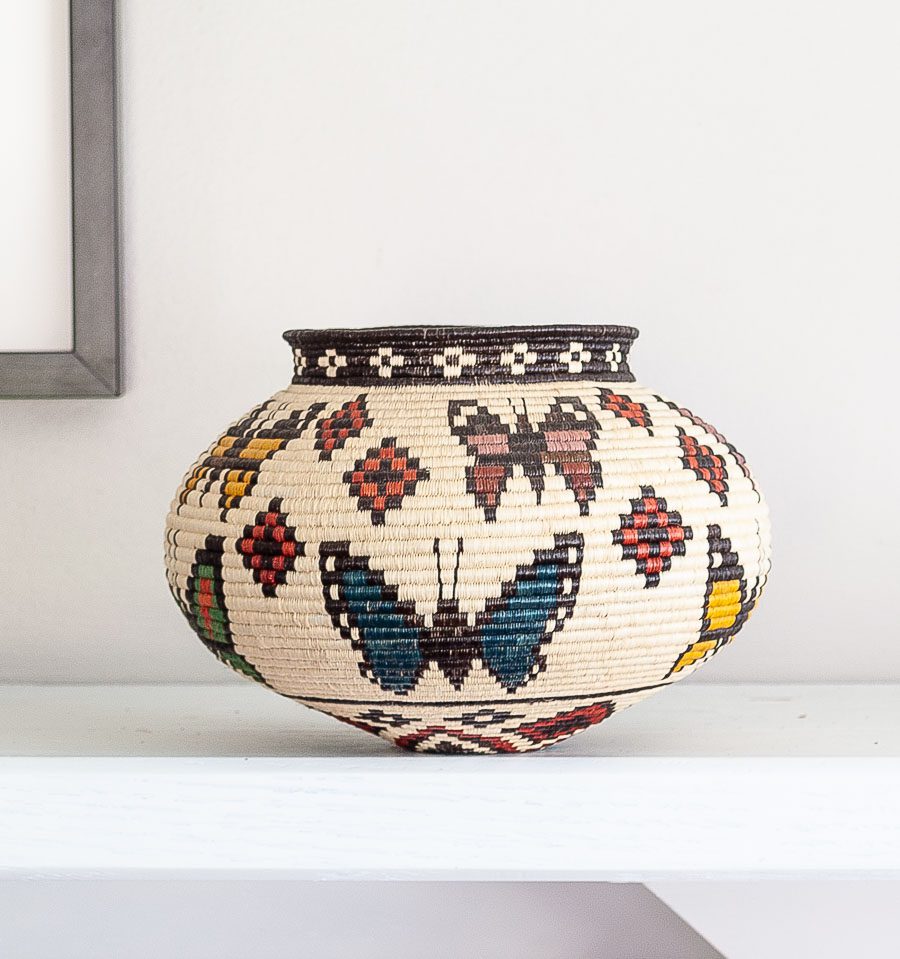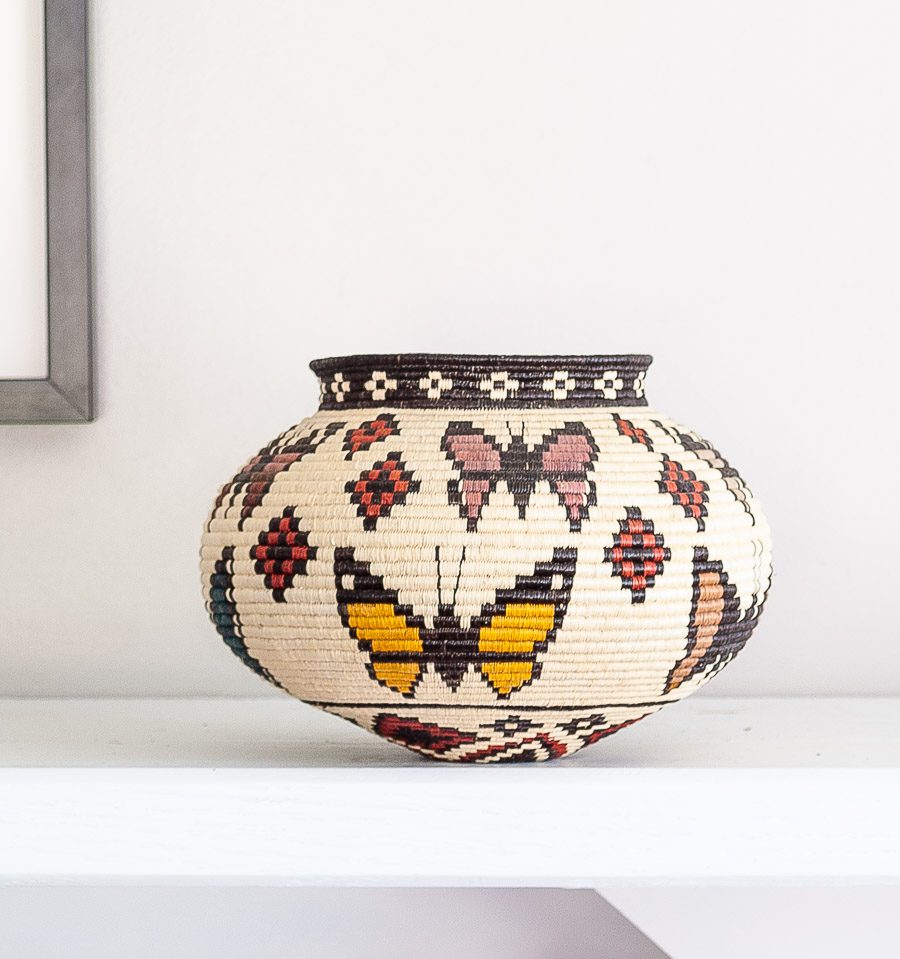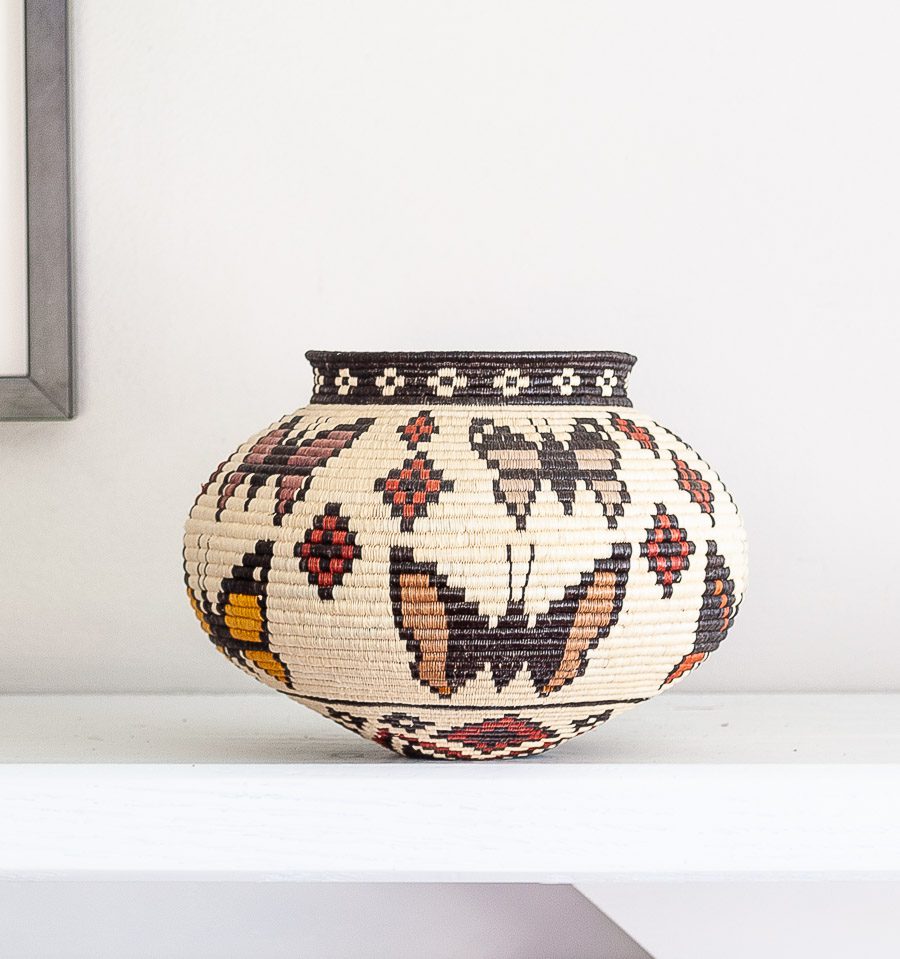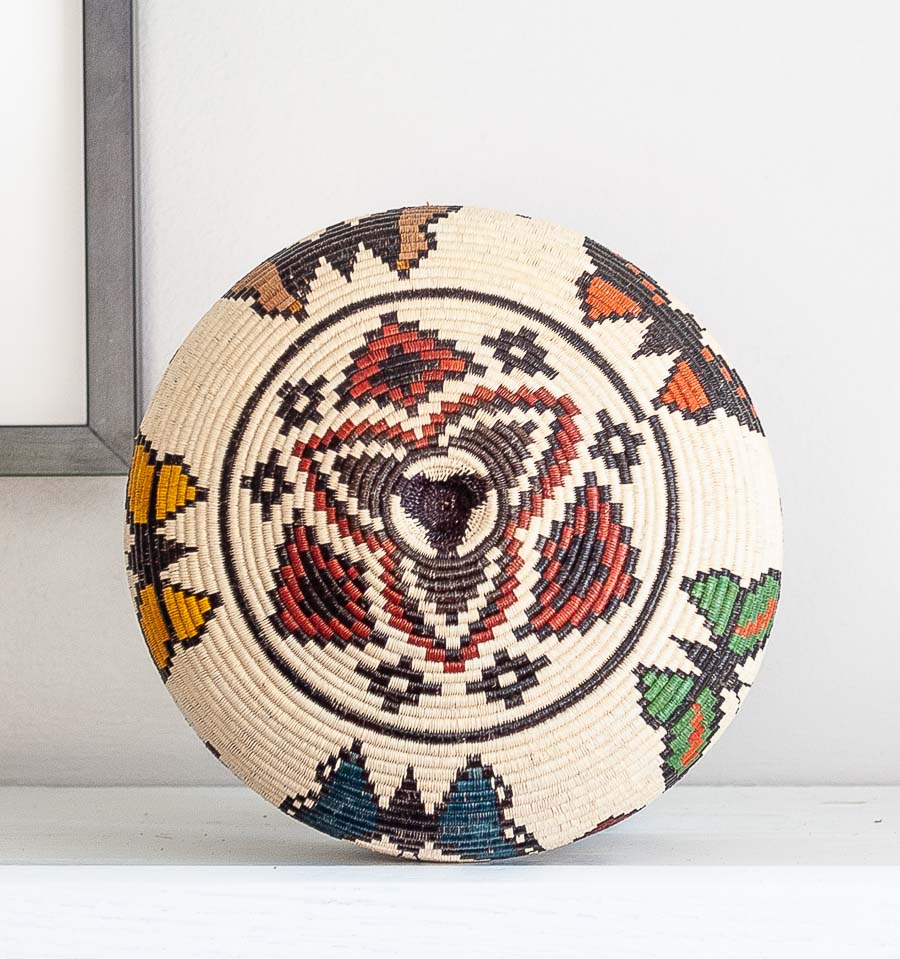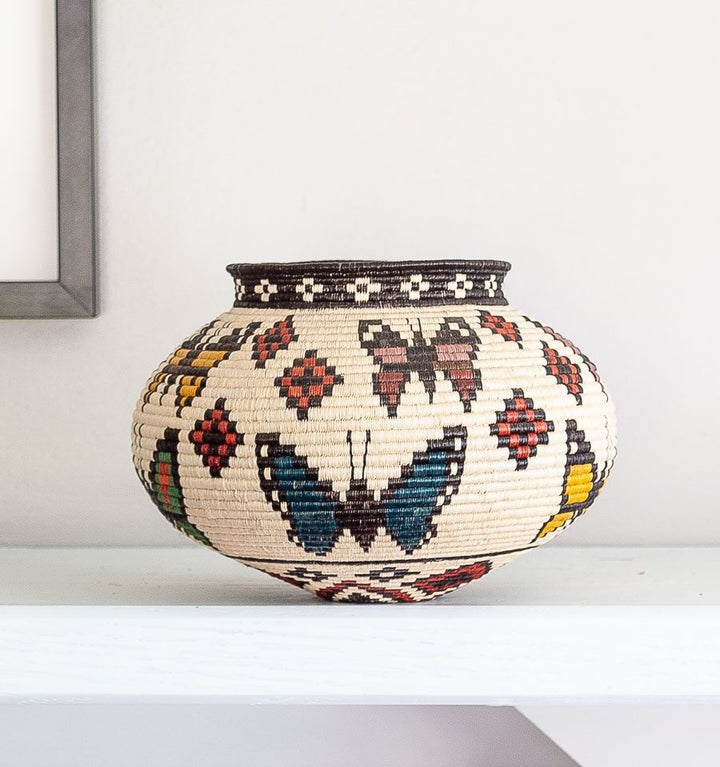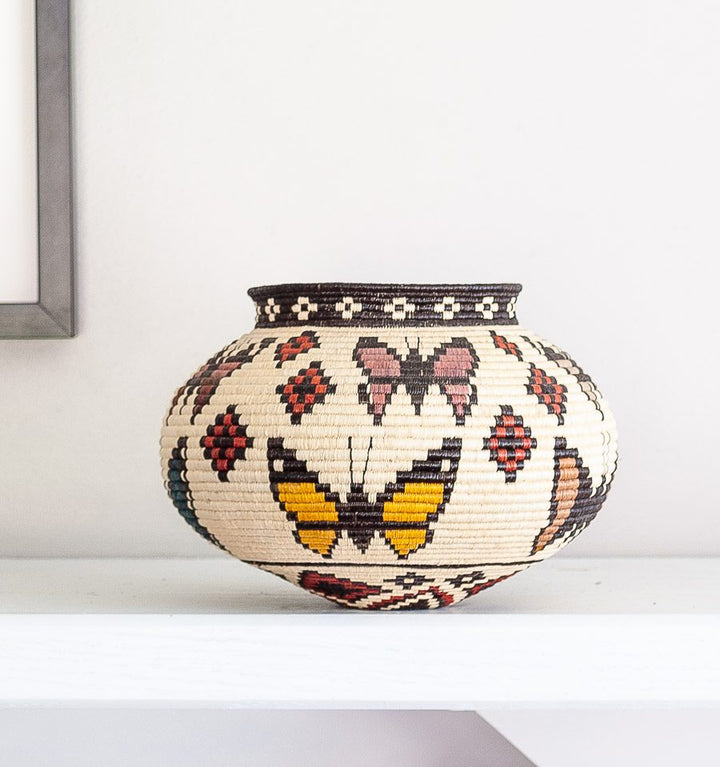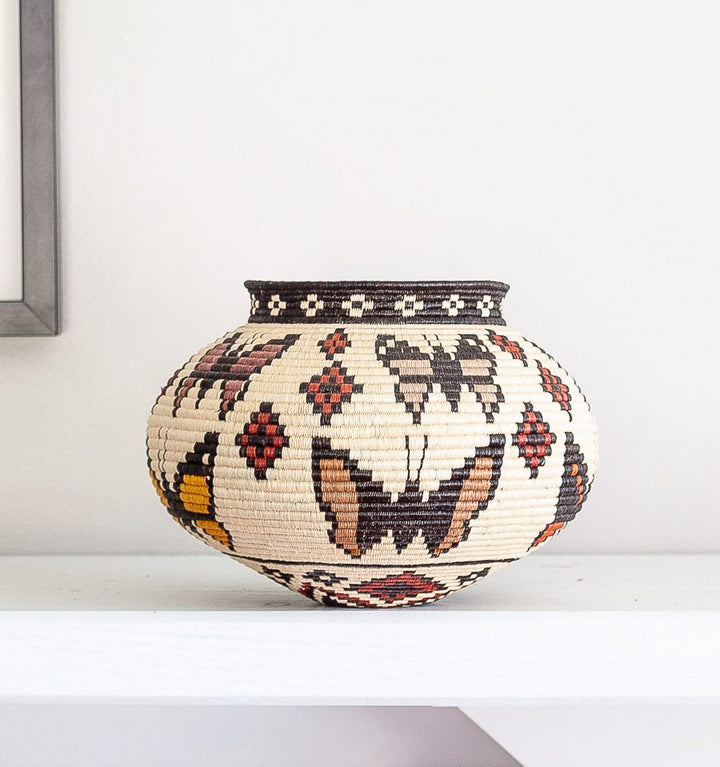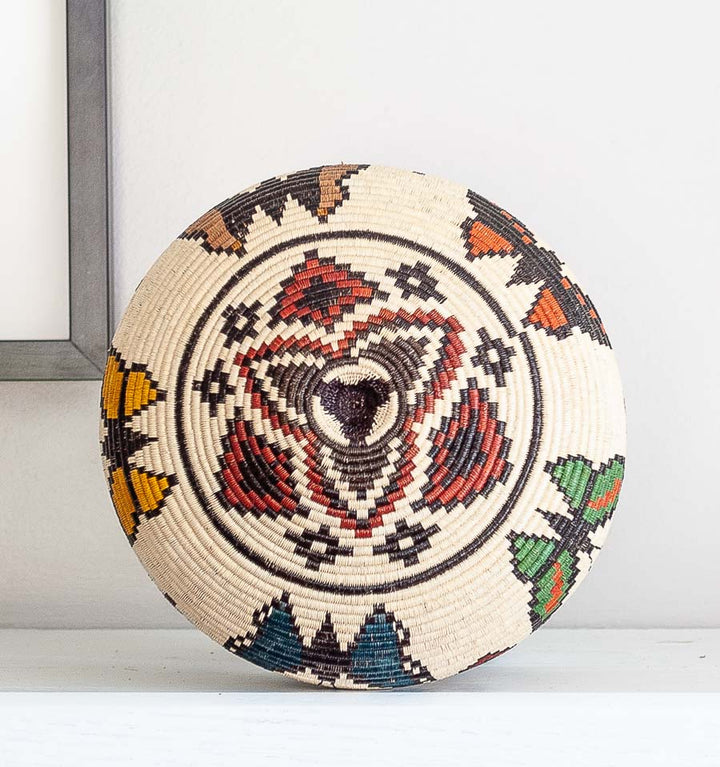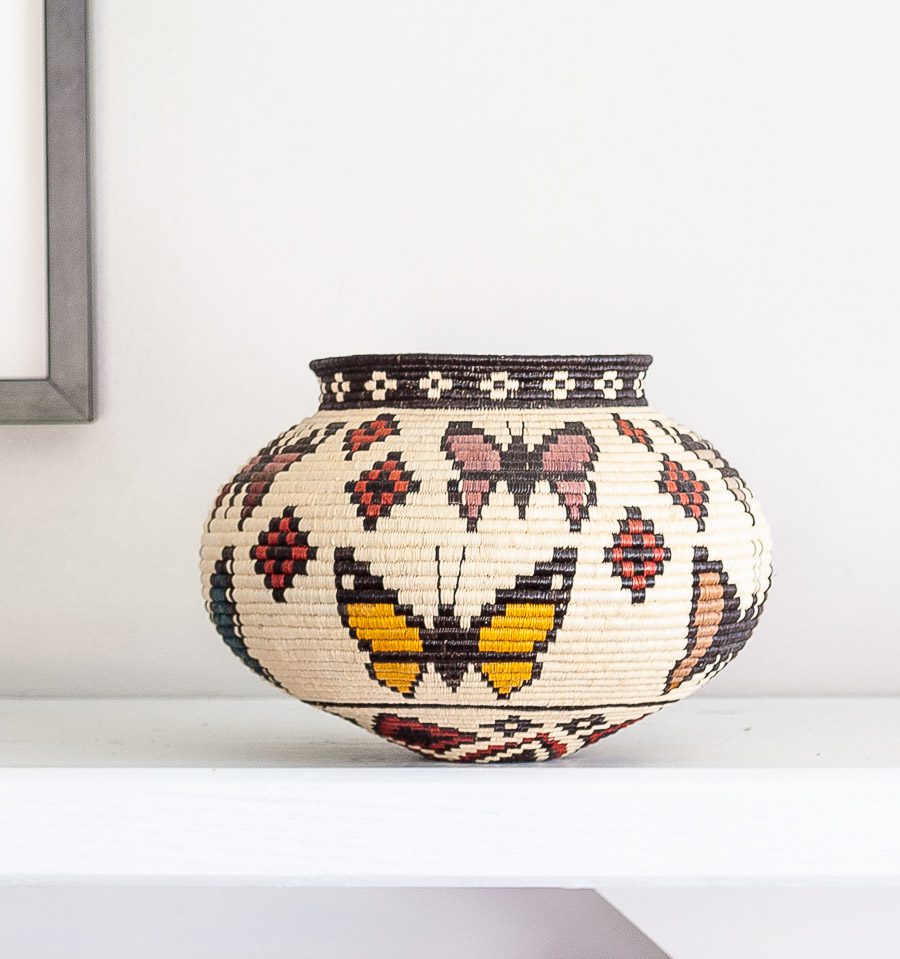The Story
Handmade by the rural Wounaan tribe, each basket is more than an object—it is a living thread in an ancient tradition. For generations, Wounaan families of the Darién rainforest have practiced the intricate art of weaving, passing knowledge from elder to apprentice, palm frond to palm frond.
Every material is gathered from the rainforest itself. Palm fibers are cut, stripped, and dyed with pigments drawn from leaves, roots, seeds, and bark. Masks and baskets are both shaped with similar weaving techniques—tight coils and precise stitches that demand patience and vision. Even the carvings that accompany some works are drawn from the wood surrounding each artist’s village, connecting object to place in the most literal sense.
The result is art that is deeply rooted in its origin: vibrant, resilient, and bound to the natural rhythms of the forest. Each piece embodies not only the creative hand of the weaver but also the enduring spirit of the Darién itself.
The Making
Inspired by the rainforest and by pre-Colombian body painting, each basket is a dialogue between tradition and the natural world. Weavers stitch with fine needles and the most supple fibers of the werregue and naguala palms—materials prepared, softened, and dyed with pigments drawn from seeds, roots, and leaves. Months, and often years, go into a single piece, each coil revealing echoes of ancient pottery, wild plant life, and the patient rhythm of hand and thread.
Each piece is handwoven over many months using natural fibers and plant-based dyes. To protect its color and structure, we recommend displaying your woven art away from direct sunlight or skylights, as UV exposure can fade dyes and weaken fibers over time.
In very dry climates, you may occasionally mist the inside lightly with distilled or non-chlorinated water—similar to caring for wicker or rattan. Gently blot away any excess with a paper towel to help maintain the fiber’s natural balance.




